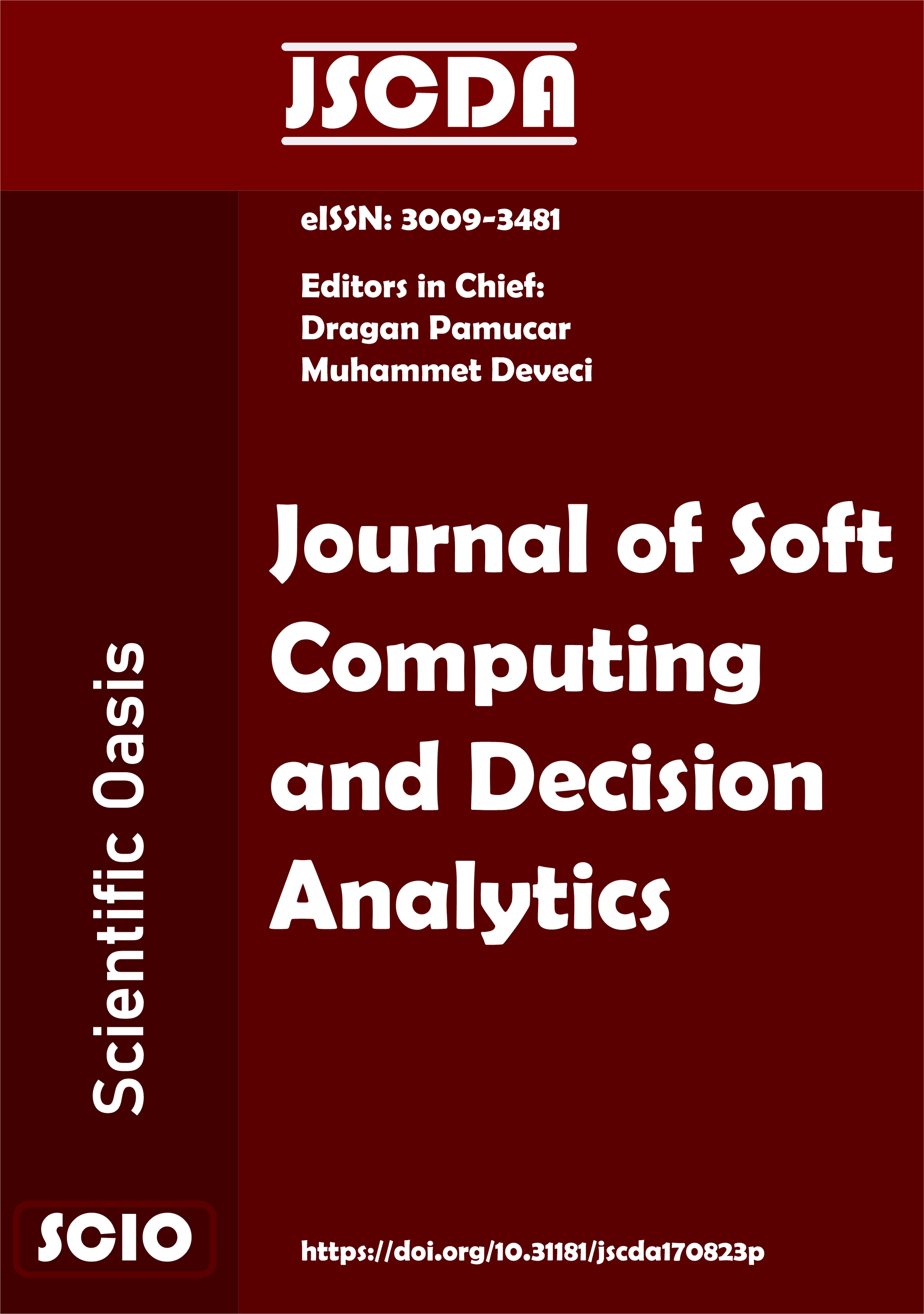Do Information Systems Today Play a Strategic Role in Business?
DOI:
https://doi.org/10.31181/jscda21202432Keywords:
Information systems, Strategic information systems, Strategic role, Digital transformation, Decision analyticsAbstract
An information system is a combination of software, hardware, and telecommunication networks to collect useful data, especially in an organisation. Many businesses use information technology to complete and manage their operations, interact with their consumers, and stay ahead of their competition. The purpose of this study is to analyze and investigate the strategic role of information systems in modern enterprises. We analyzes the components of information systems and their overall functions, as well as the importance of keeping the information system and organizational strategy aligned. By analyzing the influence of digital connection on enterprises, this paper expounds the adoption of information system in enterprises. We analyze the reasons why information systems have a significant impact on organizational operations, and the goals of an enterprise's adoption of information systems. The relationship between proper information system and improving the efficiency of company operation is analyzed. In business operation, small and medium-sized enterprises regard information system as a priority, and the impact of strategic information system on enterprises. From the above, we conclude the value of information systems in contemporary enterprises, increasing productivity, reducing resource use, and making data collection more efficient.
References
Lenartowicz, A., Kalar, D. J., Congdon, E., & Poldrack, R. A. (2010). Towards an ontology of cognitive control. Topics in cognitive science, 2(4), 678-692. https://doi.org/10.1111/j.1756-8765.2010.01100.x.
Coelho, P. S., Rita, P., & Santos, Z. R. (2018). On the relationship between consumer-brand identification, Brand Community, and Brand Loyalty. Journal of Retailing and Consumer Services, 43, 101–110. https://doi.org/10.1016/j.jretconser.2018.03.011.
Ramezani, J., & Camarinha-Matos, L. M. (2020). Approaches for resilience and antifragility in collaborative business ecosystems. Technological Forecasting and Social Change, 151, 119846. https://doi.org/10.1016/j.techfore.2019.119846.
Carey, K. (1997). Comparative disadvantage and special opportunities and the Information Technology Revolution: General Considerations and the examination of Visual Impairment as a case study. Aslib Proceedings, 49(4), 77–81. https://doi.org/10.1108/eb051452.
Kim, S. (2022). Critical success factors evaluation by multi-criteria decision-making: A strategic information system planning and strategy-as-practice perspective. Information, 13(6), 270. https://doi.org/10.3390/info13060270.
Chatzoglou, P. D., Diamantidis, A. D., Vraimaki, E., Vranakis, S. K., & Kourtidis, D. A. (2011). Aligning it, strategic orientation and organizational structure. Business Process Management Journal, 17(4), 663–687. https://doi.org/10.1108/14637151111149474.
Al Ammary, F., Bowring, M. G., Massie, A. B., Yu, S., Waldram, M. M., Garonzik-Wang, J., Thomas, A. G., Holscher, C. M., Qadi, M. A., Henderson, M. L., Wiseman, A. C., Gralla, J., Brennan, D. C., Segev, D. L., & Muzaale, A. D. (2019). The changing landscape of live kidney donation in the United States from 2005 to 2017. American Journal of Transplantation, 19(9), 2614–2621. https://doi.org/10.1111/ajt.15368.
Arvidsson, V., Holmström, J., & Lyytinen, K. (2014). Information systems use as strategy practice: A multi-dimensional view of strategic information system implementation and use. The Journal of Strategic Information Systems, 23(1), 45–61. https://doi.org/10.1016/j.jsis.2014.01.004.
Merali, Y., Papadopoulos, T., & Nadkarni, T. (2012). Information systems strategy: Past, present, future? The Journal of Strategic Information Systems, 21(2), 125–153. https://doi.org/10.1016/j.jsis.2012.04.002.
Zubovic, A., Pita, Z., & Khan, S. (n.d.-a). A framework for investigating the impact of information systems capability on Strategic Information Systems Planning Outcomes. CORE. https://core.ac.uk/outputs/301362933.
Bradley, R. V., Pridmore, J. L., & Byrd, T. A. (2006). Information systems success in the context of different corporate cultural types: An empirical investigation. Journal of Management Information Systems, 23(2), 267–294. https://doi.org/10.2753/mis0742-1222230211.
75+ Digital Transformation Statistics in 2023 & Beyond. Quixy. (2023, January 4). https://quixy.com/blog/top-digital-transformation-statistics-trends-forecasts.
Saldanha, T. J., Lee, D., & Mithas, S. (2020). Aligning Information Technology and business: The differential effects of alignment during investment planning, delivery, and change. Information Systems Research, 31(4), 1260–1281. https://doi.org/10.1287/isre.2020.0944.
Ullah, A., & Lai, R. (2013). A systematic review of Business and Information Technology Alignment. ACM Transactions on Management Information Systems, 4(1), 1–30. https://doi.org/10.1145/2445560.2445564.
Kamariotou, M., & Kitsios, F. (2019, July). Strategic planning and information systems success: Evaluation in greek SMEs. In 2019 IEEE 21st Conference on Business Informatics (CBI) (Vol. 1, pp. 204-211). IEEE. https://doi.org/10.1109/cbi.2019.00030.
Kamariotou, M., & Kitsios, F. (2022). Strategic alignment and Information Systems Success: Towards an evaluation model for firm performance. AIS Electronic Library (AISeL). https://aisel.aisnet.org/ukais2022/9/.
Yaokumah, W., Omane-Antwi, B. B., & Asante-Offei, K. O. (2022). Critical success factors of Strategic Information Systems Planning: A delphi approach. Kybernetes, 52(6), 1999–2017. https://doi.org/10.1108/k-05-2021-0370.
O’Leary, D. E. (2020). Evolving Information Systems and technology research issues for COVID-19 and other pandemics. Journal of Organizational Computing and Electronic Commerce, 30(1), 1–8. https://doi.org/10.1080/10919392.2020.1755790.
Seyal, A. H. (2020). Evaluating Information Technology Strategic Planning Process: Lesson Learnt from Bruneian small businesses. Strategy and Behaviors in the Digital Economy. https://doi.org/10.5772/intechopen.84449.
Chang, H. H. (2006). Technical and management perceptions of enterprise information system importance, implementation and benefits. Information Systems Journal, 16(3), 263–292. https://doi.org/10.1111/j.1365-2575.2006.00217.x.
Downloads
Published
Issue
Section
License
Copyright (c) 2023 Scientific Oasis

This work is licensed under a Creative Commons Attribution-NonCommercial-NoDerivatives 4.0 International License.
















